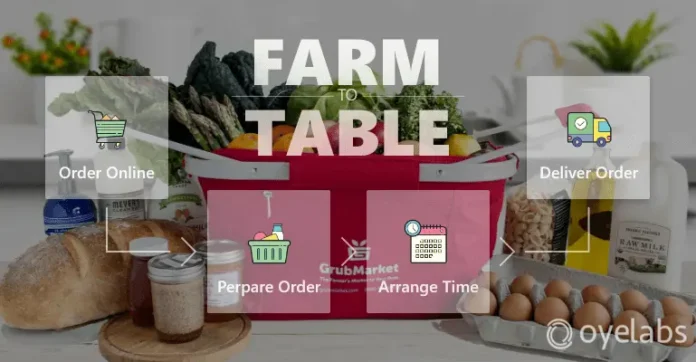Enterprise Issues
With Siaka Momoh
This business needs rethinking. Why not? Go back to history, you will get the message. History, yes – history of creation. Remember the Garden of Aden. Remember Adam and Eve, the first man and woman whom God created and placed in the garden and asked to cultivate it, and keep it. It is therefore very clear that it was the first business that God, the creator of Heaven and Earth established.
Remember also that God created four rivers in the garden – Pison, Gihon, Tigris nd Euphrates, for irrigation. Or when we talk of livestock, which is agriculture too – recall David who was feeding his father’s sheep at Bethlehem from where he came to fight Goliath. These and other references to agribusiness in the Holy Bible, and the Holy Quran as well, manifest the importance of agriculture in an economy – they tell us that agribusiness was in existence at the origin of human race.
Or imagine a world without food. What is the consequence of this? Surely the result will be end of human race.
Take a look at these facts too: We have had four economies since the world that we know of now came to be. These include, Hunters and Gatherers Economy, Agricultural Economy, Industrial Economy and Knowledge Economy (ICT). We may however group the first and second economies as one and take it that we have had three economies to date.
These economies, in silos, are of no use to us. Knowledge economy is big business; but it derives its intimidating valuable size from its linkage to the economies listed herein. Rethinking agriculture comes in here. Agriculture is a strong base for industrialisation – recall food processing and the usefulness of a chain of its products that are raw materials to industries –agro-based industries.
Nigeria Agric Facts
According to our Statistica.com source, Nigeria has an arable land area of 34 million hectares: 6.5 million hectares for permanent crops, and 28.6 million hectares on meadows and pastures. Agriculture accounts for about 24 percent of Nigeria’s GDP. The country is a leader in various types of agricultural production, such as palm oil, cocoa beans, pineapple, and sorghum. It is the largest producer of sorghum in the world just after the United States, and ranks fifth in the production of palm oil and cocoa beans. Nigeria is also a large global exporter in this sector. Oil, fruits, nuts, seeds are among the ten best performing export categories.
Agriculture is a key activity for Nigeria’s economy after oil. Agricultural activities provide livelihood for many Nigerians, whereas the wealth generated by oil reaches a restricted share of the population. According to the most recent data, some 70 percent of households in Nigeria participate in crop farming activities, while about 41 percent own or raise livestock. In rural areas more people participate in agricultural activities than in urban areas. Fishing is a less popular activity than farming. With a coastline of 850 kilometers, and many lakes, creeks, and rivers, fishing is practiced by about three percent of households. In the South South states, fishing is much more common than in others.
Among households, the most common crops in Nigeria are maize and cassava, which are grown by almost 50 percent of households. In addition, other widespread crops are Guinea corn, yam, beans, and millets. In quite a few plot-growing maize crops, households used to apply herbicides, while about half use inorganic fertilizers. Among all major crops grown by Nigerian households, herbicides, inorganic fertilizers, animal tractions, and organic fertilizers are the most common farming inputs. Apart from household farming activities, Nigeria is a global leader in agricultural production, as mentioned before. In large production, palm oil crops experienced a significant increase in the past two decades, reaching 1.4 million metric tons in the last three years. Similarly, milled rice and soybean production have generally been growing as well. On the other hand, some of Nigeria’s largest agricultural productions dropped, such as millet crops.
The population of Nigeria is growing at very high rates and the food demand is rising accordingly. Indeed, the Nigerian population is forecast to reach over 370 million people by 2050. Estimations published in 2019 show that by 2050 the consumption of livestock products is going to increase significantly. For instance, the consumption of milk might grow by over 260 percent, for eggs by 250 percent. Likewise, meat demand will reach high levels too. This scenario could have negative consequences on the food supply in the country. Over the last years, the average share of the Nigerian population suffering from severe food insecurity has been rising. Between 2020 and 2022, around 21 percent of people experienced hunger. People in severe food insecurity would go for entire days without food, due to lack of money or other resources. In fact, the food CPI is increasing month by month in Nigeria.
Large population is large consumer market which translates into investment opportunities. So we must start now if we must achieve food security; the journey to peace in Nigeria must start with agriculture; we must substitute petro-dollar with agro-dollar.
How do we go about this? The answer: Cheap funding for farming; energy availability (particularly for the value chain); good rural road network and affordable transportation; cheap inputs supply; mechanised farming; extensive research; and right policies.
It was heart-warming that Professor Ruerd Ruben, Research Coordinator, Food Security Agricultural Economics Institute of Wageningen University, the Netherlands, said there was “an intricate network of producers and processors in agro-economy” and that there was “need to bring network together”. He was apparently pointing at the deficiency of this requirement in Nigerian agro-economy. He argued, “The agro-logistics must be right. There must be a good link between producers, processors, supermarkets and consumers.”
This is the issue. This is where the rethinking of agriculture takes off from. It is agric for business – agribusiness, one that involves the entire value chain in agriculture – from the farm-gate to the table.



